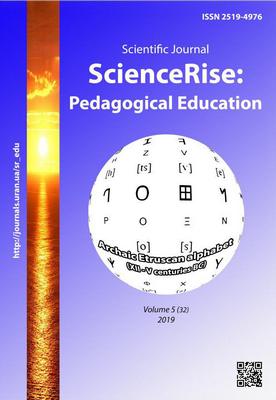The role of teams games tournaments (TGT) against activity of learning elementary school students
DOI:
https://doi.org/10.15587/2519-4984.2019.179145Keywords:
Teams, Games, Tournaments, Activity, Learning, Students, Elementary School, ModelAbstract
The purpose of this study is to explain theoretically about the role of teams games tournaments ( TGT ) on the learning activities of elementary school students .
Many factors influence the success of primary school students including the activeness of students in participating in learning. To optimize the activity of learning an appropriate learning model is needed. The right learning model is expected to develop its critical thinking skills and be able to actively participate during the learning process. Through the TGT learning model can train students to think critically in tournaments and quizzes. And student learning activities can be built through group learning in teams. This is reinforced by previous studies using the TGT model for critical thinking skills, the results show an increase, or in other words the effectiveness of critical thinking skills using the TGT model has increased.
Based on the discussion of theoretical studies that have been presented theoretically reviews : teams games tournaments ( TGT ) have a role in the activity of learning in elementary school students
References
- Goldie, J. G. S. (2016). Connectivism: A knowledge learning theory for the digital age? Medical Teacher, 38 (10), 1064–1069. doi: https://doi.org/10.3109/0142159x.2016.1173661
- Kalina, C., Powell, K. C. (2009). Cognitive and social constructivism: Developing tools for an effective classroom. Education, 130 (2), 241–250.
- Mulnix, J. W. (2012). Thinking Critically about Critical Thinking. Educational Philosophy and Theory, 44 (5), 464–479. doi: https://doi.org/10.1111/j.1469-5812.2010.00673.x
- Slavin, R. E. (1980). Cooperative Learning. Review of Educational Research, 50 (2), 315–342. doi: https://doi.org/10.3102/00346543050002315
- Van Wyk, M. M. (2011). The Effects of Teams-Games-Tournaments on Achievement, Retention, and Attitudes of Economics Education Students. Journal of Social Sciences, 26 (3), 183–193. doi: https://doi.org/10.1080/09718923.2011.11892895
- Holt, J. C. (1989). Learning all the time. New York: Addison-Wesley.
- Crawford, B. A. (2007). Learning to teach science as inquiry in the rough and tumble of practice. Journal of Research in Science Teaching, 44 (5), 613–642. doi: https://doi.org/10.1002/tea.20157
- Sudjana, N., Rivai, A. (2005). Media pembelajaran. Bsndung: Sinar Baru.
- Djamarah, S. B., Zain, A. (2002). Belajar dan pembelajaran. Jakarta: Rineka Cipta.
- Nasution, S. (2000). Berbagai pendekatan dalam proses belajar dan mengajar. Jakarta: Bina Aksara, 223.
- Khalistyawati, M., Muhyadi, M. (2018). Pengaruh model STAD dan jigsaw terhadap karakter kerja sama, kemampuan berpikir kritis, dan hasil belajar kognitif. Jurnal Pendidikan Karakter, 8 (2), 187–205.
Downloads
Published
How to Cite
Issue
Section
License
Copyright (c) 2019 Selia Wahyu Kaeksi, Farida Agus Setiawati

This work is licensed under a Creative Commons Attribution 4.0 International License.
Our journal abides by the Creative Commons CC BY copyright rights and permissions for open access journals.
Authors, who are published in this journal, agree to the following conditions:
1. The authors reserve the right to authorship of the work and pass the first publication right of this work to the journal under the terms of a Creative Commons CC BY, which allows others to freely distribute the published research with the obligatory reference to the authors of the original work and the first publication of the work in this journal.
2. The authors have the right to conclude separate supplement agreements that relate to non-exclusive work distribution in the form in which it has been published by the journal (for example, to upload the work to the online storage of the journal or publish it as part of a monograph), provided that the reference to the first publication of the work in this journal is included.








